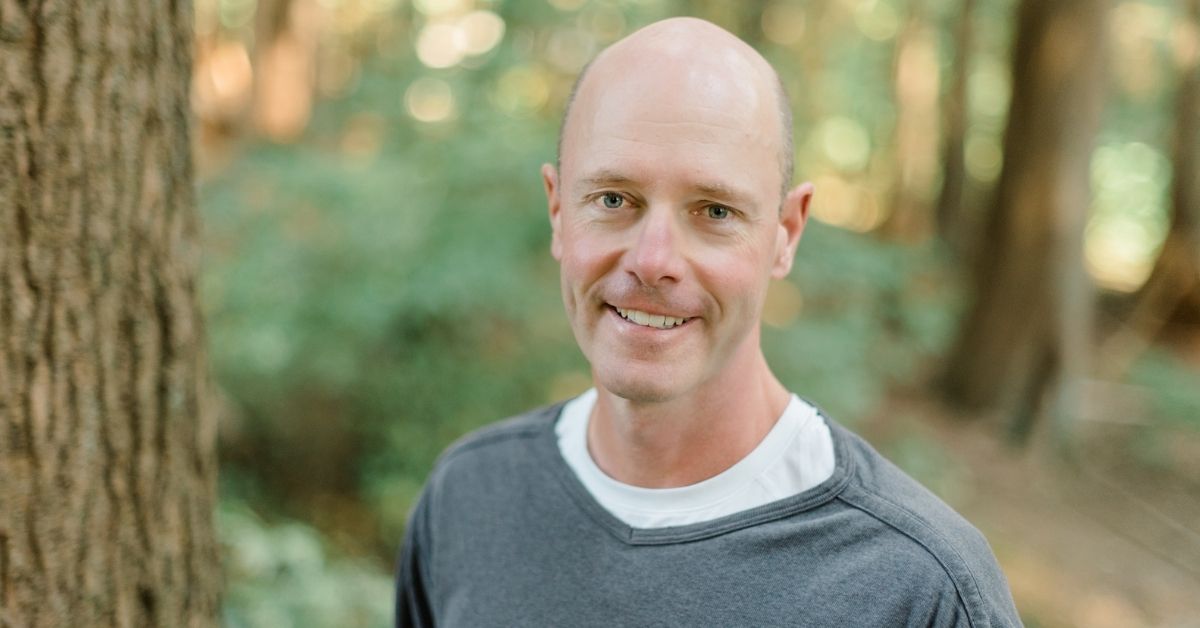Dr. Scott Lear has spent his career researching heart health. He’s dedicated his life to helping others prevent heart disease as a professor of health sciences at Simon Fraser University and the Pfizer/Heart and Stroke Foundation Chair in Cardiovascular Prevention Research.
But even heart experts aren’t immune to health scares—and Dr. Lear’s journey serves as a reminder for all of us.
Dr. Lear’s heart scare and battle with depression
For years, Dr. Lear experienced episodes of a rapid heartbeat while swimming. At first, they were rare. “Maybe for about ten years, when I’d swim, get a really rapid heartbeat, and then it would go away,” he recalled. A cardiologist friend reassured him it wasn’t a big deal if it happened only a few times a year.
So, he didn’t worry about it—until it started happening more often. “It got to the point where it was happening a couple of times a week,” he said. Still, he hesitated to seek medical help. He knew there would be no turning back once he told a doctor.
When he finally had his heart checked, Dr. Lear was diagnosed with exercise-induced arrhythmia. His heart was beating too fast, preventing it from properly pumping blood. If left untreated, it could lead to cardiac arrest.
Even experts avoid the doctor sometimes
Dr. Lear’s experience highlights something many of us do—avoid the doctor, even when we know something’s wrong. “Doctors can be the worst patients,” he admitted, sharing how he had seen cardiologists ignore their symptoms only to suffer heart attacks later.
Despite his career in disease prevention, Dr. Lear found himself in the same situation. “I was expecting zero blockage,” he said of his test results. Instead, he learned that one of his arteries was 20 percent blocked. “At first, it was a shock to me.”
What helped his heart
After his diagnosis, Dr. Lear took action. While his doctor told him his lifestyle was already quite healthy, he made small but meaningful changes. “I eat more protein now,” explaining that research shows active people need more protein as they age. He said this is the same advice dietitians give people who enter the cardiac rehab program: “The dietitians would tell a lot of the patients to increase their protein.”
He also adjusted his exercise routine, maintaining the same amount of activity but not pushing himself as hard.
Into a dark place
Dr. Lear’s health journey didn’t stop with his heart. In 2021, he was diagnosed with depression—something he had unknowingly struggled with for a long time. “By the time you’re diagnosed, you’ve been dealing with it for years without knowing it,” he said.
He realized his mental health struggles were affecting his family and that he needed help. “It came to kind of a big blow-up in my family, and that was kind of what led me to say, ‘Okay, I’ve got to get some help.’”
Dr. Lear had felt isolated for years, even when surrounded by loved ones. “You can have a partner sleeping in the bed beside you and still feel completely alone,” he admitted. The feelings of loneliness were overwhelming, making it even harder to reach out for help. “I thought if I kept it inside, I could deal with it on my own. But that wasn’t true.”

How he turned his mental health around
Dr. Lear approached his mental health treatment the same way he approached his research—with curiosity and dedication.
One of the most impactful parts of his recovery was working closely with a counsellor, something he had been hesitant about in the past. During his treatment, he found a therapist who helped him reshape his approach to mental health. “Finding the right counsellor is just like finding the right doctor—you have to find someone who understands you.”
Through therapy, Dr. Lear learned coping strategies to manage stress, anxiety, and depressive symptoms. “It wasn’t just about talking things out—it was about learning how to reframe my thoughts and build resilience,” he explained.
Two years later, he feels like a new person. “I feel much better than I can remember,” he said. “For years, I’d have days where I’d wake up feeling good, and I’d think, ‘What did I do differently?’ But now I realize that’s probably how I should have felt most of the time.”
Dr. Lear’s advice to keep your heart healthy
After a lifetime of researching cardiovascular health, here are Dr. Lear’s top tips.
Break up your day with ‘exercise snacks’
Being active doesn’t always mean structured workout sessions. “If we think about someone who sits for eight hours a day, there’s a big difference between a person who sits continuously for hours and someone who gets up and moves around every half hour,” he explained.
These short bursts of activity, often called “exercise snacks,” can be as simple as walking around for two minutes or jumping jacks, push-ups, or squats beside your desk. “Even though they’re both sitting the same amount, the person who breaks up their sitting time has a lower risk for type 2 diabetes, cancer, heart disease, and early death.”
Beyond exercise, Dr. Lear encourages finding ways to integrate movement into daily life. “Taking the stairs instead of the elevator, walking up the escalators, or parking further away all add up,” he said. “It doesn’t have to be a workout—just movement.”

The more exercise you do, the better it is
Dr. Lear is no stranger to the important role that physical activity plays in helping people live longer. He conducted research on the effect of physical activity on mortality and cardiovascular disease with over 130,000 people between the ages of 35 and 70 across 17 countries.
Dr. Lear and his team wanted to go beyond the standard recommendations in the 24-Hour Movement Guidelines, which recommend at least 150 minutes of moderate to vigorous exercise per week—like brisk walking, running or playing tennis.
For the study, they divided people into different groups: those who did not meet the guidelines, those who met them, and those who exceeded them.
The study confirmed that any amount of movement benefits your health—it doesn’t matter if it’s a short walk or a full workout. A new finding was that the more physical activity you do, the lower your chances of early death and heart disease. Exceeding the guidelines can provide even greater benefits when done in a way that works for you. However, meeting the guidelines is still enough to help keep you healthy for longer.
Reduce ultra-processed foods
Dr. Lear also discussed the importance of nutrition. “The number one thing people can do is reduce how much highly processed or ultra-processed food they eat,” he said.
He warns against foods that come in excessive packaging or are filled with additives and sugars. “Some of these foods even absorb chemicals from their packaging, and we don’t fully know the effects on our bodies yet,” he added. Instead, he recommends eating foods that resemble their natural state as much as possible—minimally processed and nutrient-dense.
Sleep sets the foundation
Another lifestyle change that makes a big impact is getting enough sleep. “That’s the foundation for how the rest of your day is going to go. If you get a good night’s sleep, you’ve got energy, you feel like being active, you make smarter decisions, and you’re in a better mood.”
His story is a reminder that no one is invincible—not even the experts. Taking care of your heart and mind doesn’t have to mean drastic changes, but paying attention to warning signs and making small, sustainable improvements can have a lasting impact. Dr. Lear hopes sharing his story will help others realize they’re not alone.
Want to hear more from Dr. Scott Lear? Read his blog at drscottlear.com or listen to his podcast, How to Health. And don’t forget to follow the Don’t Change Much podcast for more real-life health stories.














Let’s Talk!
Did you enjoy this article? Let us know in the comments.
0 Comments